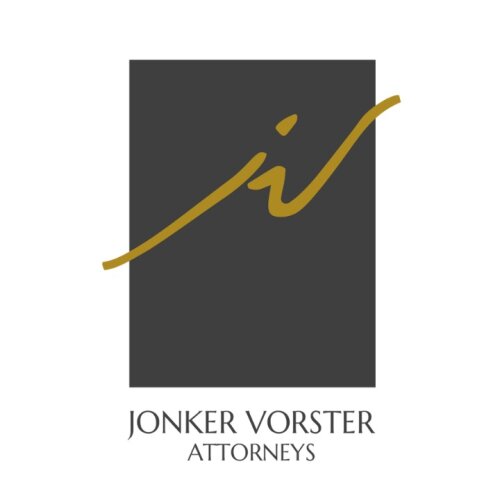Best Bankruptcy Lawyers in Paarl
Share your needs with us, get contacted by law firms.
Free. Takes 2 min.
List of the best lawyers in Paarl, South Africa
About Bankruptcy Law in Paarl, South Africa
Bankruptcy in Paarl, as in the rest of South Africa, is a legal process that allows individuals or businesses unable to meet their financial obligations to have those debts legally forgiven or restructured. Governed mainly by the Insolvency Act of 1936, bankruptcy helps prevent overwhelming financial distress for creditors and debtors. In Paarl, this process is typically administered through local courts, offering a structured way to handle insolvencies, protect assets where possible, and ensure creditors receive some repayment.
Why You May Need a Lawyer
Bankruptcy proceedings can be complex and navigating them without professional guidance can be challenging. Common situations where legal help may be needed include:
- Understanding the eligibility criteria for declaring bankruptcy.
- Filing the necessary legal paperwork accurately and on time.
- Assessing the validity and scope of your debts before filing.
- Negotiating with creditors for better settlement terms.
- Representation in court proceedings and meetings with creditors.
- Advising on the liquidation or sequestration process.
- Reorganizing a business to avoid liquidation.
- Protecting certain assets from being used to pay creditors.
Local Laws Overview
The primary legislation dealing with bankruptcy in South Africa is the Insolvency Act of 1936. Key aspects of local laws related to bankruptcy include:
- Debtors must prove insolvency-it must be shown that liabilities exceed assets.
- Voluntary sequestration involves the debtor petitioning the court for bankruptcy.
- Involuntary sequestration allows creditors to petition to have the debtor declared insolvent.
- The process considers disposition, property distribution, and preference of claims.
- Specific assets and transactions occurring before filing may need to be reviewed under the 'act of insolvency.'
- The Master of the High Court oversees the process and actions of trustees managing estates.
Frequently Asked Questions
What is the difference between sequestration and liquidation in South Africa?
Sequestration generally refers to the process involving an individual's insolvency, while liquidation pertains specifically to the winding up of a company's affairs.
Can all debts be discharged through bankruptcy in Paarl?
Not all debts can be discharged through bankruptcy. Certain obligations like fines or debts acquired through fraud might not be discharged.
How long does the bankruptcy process take?
The duration can vary, but typically, it can take a few months to several years depending on the complexity of the estate and any disputes that arise.
Will I lose all my property if I declare bankruptcy?
Not necessarily. The court and trustees may allow you to retain some essential and exempted assets, particularly if they do not offer significant value to creditors.
Can I be declared bankrupt without my consent?
Yes, creditors may petition the court for your sequestration if evidence suggests insolvency.
How will bankruptcy affect my credit rating?
Being declared bankrupt can significantly impact your credit rating, making it difficult to obtain credit for several years.
Is there a way to avoid declaring bankruptcy?
Bankruptcy might be avoided through debt restructuring or negotiations with creditors; legal advice can guide you towards viable alternatives.
What role does a trustee play in the bankruptcy process?
A trustee manages the debtor's estate, ensuring fair distribution of assets to creditors and maintaining oversight of the insolvency process.
Can I declare bankruptcy for my business?
Yes, businesses can undergo liquidation, which is similar to bankruptcy for individuals but deals specifically with corporate assets and liabilities.
Are there any penalties for false claims during bankruptcy proceedings?
Yes, providing false information in a bankruptcy filing can lead to legal penalties including fines or imprisonment.
Additional Resources
For further assistance or legal advice in bankruptcy matters, consider contacting the following resources:
- The Master of the High Court in Cape Town, which oversees insolvency cases.
- Legal Aid South Africa offers pro bono legal services for qualifying individuals.
- The South African Board for Sheriffs provides oversight for the administration of insolvencies.
- The Law Society of South Africa can assist in finding accredited professionals experienced in bankruptcy law.
Next Steps
If you believe you need legal assistance with bankruptcy, consider taking the following steps:
- Compile all relevant financial documents, including evidence of debts and assets.
- Reach out to a lawyer or legal advisor specializing in insolvency to discuss your situation.
- Evaluate the costs and benefits of filing for bankruptcy versus other debt solutions.
- File the necessary legal documentation with guidance from your attorney.
- Attend all mandated meetings or court proceedings.
- Comply strictly with the legal and administrative processes advised by your lawyer and trustee.
Lawzana helps you find the best lawyers and law firms in Paarl through a curated and pre-screened list of qualified legal professionals. Our platform offers rankings and detailed profiles of attorneys and law firms, allowing you to compare based on practice areas, including Bankruptcy, experience, and client feedback.
Each profile includes a description of the firm's areas of practice, client reviews, team members and partners, year of establishment, spoken languages, office locations, contact information, social media presence, and any published articles or resources. Most firms on our platform speak English and are experienced in both local and international legal matters.
Get a quote from top-rated law firms in Paarl, South Africa — quickly, securely, and without unnecessary hassle.
Disclaimer:
The information provided on this page is for general informational purposes only and does not constitute legal advice. While we strive to ensure the accuracy and relevance of the content, legal information may change over time, and interpretations of the law can vary. You should always consult with a qualified legal professional for advice specific to your situation.
We disclaim all liability for actions taken or not taken based on the content of this page. If you believe any information is incorrect or outdated, please contact us, and we will review and update it where appropriate.








